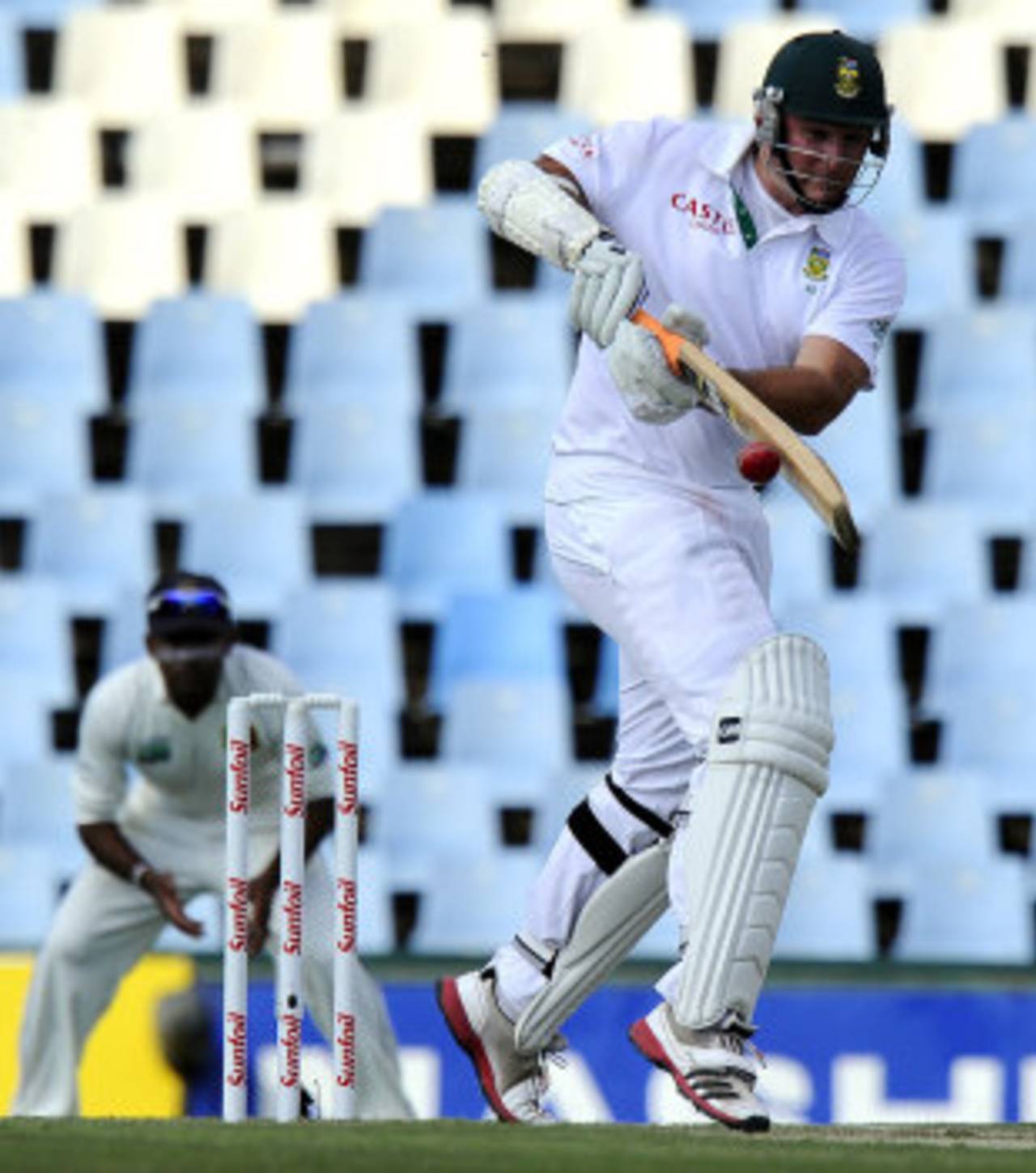South Africa front up to their mental weaknesses
After the Durban debacle, Graeme Smith seems to have accepted, at long last, that South Africa's biggest problem is in the mind. It was admittance, it was relief and finally, it was progress
Firdose Moonda in Cape Town
02-Jan-2012

Graeme Smith: "We just need to be mentally stronger at times" • AFP
Graeme Smith wore a different look on his face ahead of the New Year's Test against Sri Lanka in Cape Town. With the series surprisingly level at 1-1, those unfamiliar with Smith could have imagined that expression to be worry, concern or maybe even fear. They might have thought it was the same look as the one he donned against India last year, when South Africa arrived in Cape Town in the same situation. Those who have been around Smith since then will know it is a completely different one.
For the first time in 12 months, South Africa have admitted that their problem lies not with bat, ball, thigh pad or Duckworth-Lewis calculations (yet), but somewhere else, far more important. Smith seems to have accepted, not with resignation, not grudgingly, not fleetingly, as though he needed to say it just to pacify, but wholeheartedly, that South Africa's major concern is in the mind.
"We just need to be mentally stronger at times," Smith said.
Simple as that. After a year which has involved dodging questions about the dread c-word from the day South Africa were unable to beat India in an ODI at the Wanderers in January, to fighting off any suggestions of pressure playing a role until it actually did at the World Cup in March, to facing an unexpected and serious failure just four days ago in Durban, to hear Smith use those words was soothing. It was admittance, it was relief and finally, it was progress.
How is it possible that is has taken this long for South Africa to front up to their biggest nemesis when most of us could as clearly as a full moon on a dark night? It hasn't come at any spectacularly important time - fans will rightly think that this series is probably not half as important as the World Cup, or a series against India, England and Australia. It's come after a fourth consecutive defeat in Durban, which certainly stinks of a pattern, but not much as six World Cup failings do.
Perhaps what has really happened is that it has come after a defeat to a team who are not only ranked below South Africa but who were expected to perform dismally in this tour and started off doing so. South Africa are on the brink of losing a series at home, a position they have been in during each of the last three seasons, but against a team that some former players suggested would require nothing more than South Africa turning up. Disappointments, the South African team can tolerate but embarrassment they cannot and so, in a quest to avoid another one, they have volunteered to fix their most pressing problem.
For now, the exact method they will use to do that is not clear. Smith spoke about going through the emotions, something that sounded like advice on dealing with a break-up rather than regrouping from a sporting defeat. It sounds rather twee but it's something that South Africa have neglected in the past. Even simply admitting that they felt ashamed and humiliated to lose in the fashion they did in Durban will be a leap forward from their usual defiant, we-tried-our-best-but-it-didn't-work attitudes.
Questioning why they got themselves into positions from where they fall victim to those emotions will be the next step. Lack of ability or talent is not the answer, but, in this specific case, the venue itself may be.
Durban has become an unfashionable place for South Africans, of all varieties, in recent times. It is seen as the cheap and cheerful answer to having a good time but as a third-rate holiday destination (behind Cape Town and the bush) and these days it may even attract some raised eyebrows when people mention they are headed there.
Over the festive season, its quaint shabbiness is exposed as grubby. Over-crowding and bad service prevail. The South African team were so put off by what Durban had become that they asked to stay up the road in the Sandton-by-the-sea town of Umhlanga. Ever since they did that, they have started losing at Kingsmead. Perhaps it's a tenuous link or perhaps it's a wider illustration of how easily the team is taken out of its comfort-zone and how badly it reacts when that happens.
Cape Town, by contrast, is their happiest hunting ground where they have not lost to any team besides Australia. Its South Africa's own corner of Europe, with street cafes and over-priced everything. It's also where the team seem to be at home the most, and Smith alluded to it when he said, "Maybe in general guys are happier here." He quickly tried to pad the statement with some sprinkled details but the toothpaste was already out of the tube. "The guys enjoy playing at this stadium, with the support we get and maybe because of those good results, there's a feel-good factor and we've got some of those things to fall back on."
It's entirely likely that Cape Town will provide the bandages to be placed firmly over South Africa's wounds and that, should they win, they will forget about the mental scars and only address them next year in Durban. But, there is hope that they won't wait that long. The challenge is to do work on the reasons for losing and South Africa have only just started doing that.
Firdose Moonda is ESPNcricinfo's South Africa correspondent